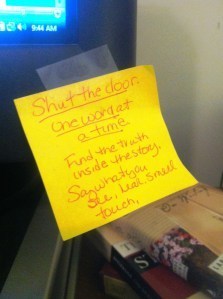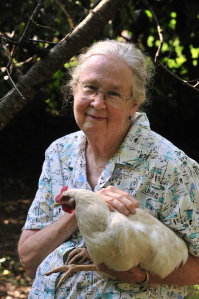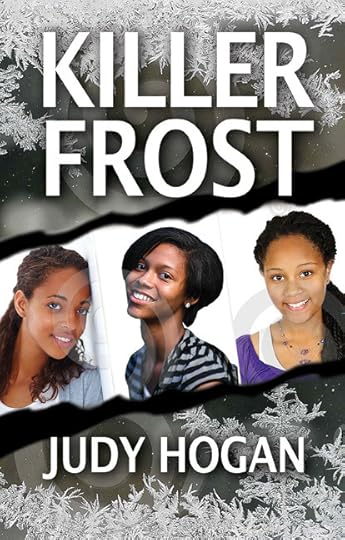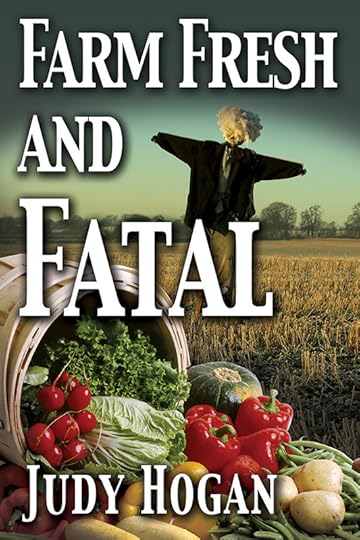Debra H. Goldstein's Blog, page 34
January 20, 2014
Guest Blogger Grace Topping: Revenge! Exorcizing Bad Memories Through Your Writing

Grace Topping with Debra H. Goldstein
REVENGE! EXORCIZING BAD MEMORIES THROUGH YOUR WRITING
by Grace Topping
All of us have them. Those pesky, uncomfortable memories that make us blanch, screech, moan, grimace, shudder, or cry. Thankfully, most of them are buried deep in our subconscious and don’t come to mind often. But when we least expect it, a scent of cologne, a bit of music on the radio, or even a billboard along the highway can cause a memory to invade our thoughts like an unwelcome intruder.
Some memories might be nothing more than the recollection of something embarrassing, while others might be truly painful. Embarrassing or painful, our experiences are the things that shape and give texture to our lives, and our memories of those experiences are fodder for our writing. Some memoirists talk about writing to exorcize ghosts from their past. In fiction, writers boast about taking revenge on someone by loosely basing a character, preferably a murder victim, on that person—in a way killing off a memory. If we can learn to laugh at things that happened in our lives, we might be able to move past them. What better revenge than basing a ridiculous character on someone who hurt us. It just might help do the trick.
The memory of falling in high school in front of the three best-looking guys in my class who laughed and stepped around me used to make me cringe. It always seemed to come to mind around the time for high school reunions. In my yet-to-be published mystery, I took that experience, added an attractive father who deserted the family and a handsome unfaithful husband and used them as the basis for my main character’s dislike of handsome men. It was a character flaw that caused her problems when she had to work with attractive police officers and other characters. It makes me laugh to think that three now middle-aged pillars of the community are immortalized in my manuscript. Now, if that memory were to intrude, I can laugh.
It would be wonderful if we had a pill or button that enabled us to zap uncomfortable or painful memories. But until such a thing is developed, why not take some of those memories and turn them into memorable characters and intriguing plots. They are free for the taking.
Do you have a ghost of a memory you’d like to exorcize?
~ ~ ~ ~ ~ ~
Thirty years of writing about computer systems was enough to drive Grace Topping to murder—or at least writing about it. Grace’s yet-to-be published mystery features a professional home stager. When she isn’t writing, she’s busy helping friends stage their homes. She is a member of the Chesapeake and Guppy Chapters of Sisters in Crime and of Mystery Writers of America. Grace and her husband reside in Northern Virginia.


January 6, 2014
Revision – A Personal Story by Debra H. Goldstein
 Revision –A Personal Story by Debra H. Goldstein
Revision –A Personal Story by Debra H. Goldstein
When I stepped down from the bench, I fully intended to treat writing as a business. I was going to schedule a specific time of day for writing and not stop until I had completed a mandatory word count. Once I wrote first drafts of stories and perhaps another book, I would begin the process of revision – making a change or set of changes to improve my work.
It didn’t happen. I traveled, threw a wedding, played with grandchildren (not from the child who got married), went to lunch, accepted more civic responsibilities, occasionally was a Mah jongg substitute, and watched almost every re-run episode of NCIS, How I Met Your Mother, and The Big Bang Theory. There was always a distraction or thing to prevent me from giving my full attention to writing.
Things that had to be written like my obligated blog postings got done, but the muse for creative writing eluded me. I actually began to doubt my stated goal of being a full time writer. My doubts scared me.
I weighed whether I should return to the practice of law, accept appointment as a senior judge or turn off the TV and give myself a good kick in the rump. With New Year’s coming, I decided to make a resolution about my writing, but doubts crept in again. After all, how many times in the past had I made resolutions like “I’m going to lose weight,” “I’m going to exercise more,” or “I’m going to be nicer and kinder to other people?”
So, no resolutions or future promises. Just an attempt at revision.
Revision is defined as “a change or set of changes that improves something. Something, such as a piece of writing or song, that has been corrected or changed.” Considering my recent state of activities, it isn’t going to require too much revision of my attitude and writing schedule to result in numerous pieces of writings that will need to be corrected or changed.
Many retirees claim they needed a break before finally settling into a productive schedule. I swore, especially being so much younger than normal retirement age, I would not be part of that group. Yet, despite my best intentions, I was. It is only in the last few weeks that the wind has changing. Now, I’m excited to imagine the work product my revised efforts will bring.
~ ~ ~ ~ ~
Debra H. Goldstein’s short story, “A Political Cornucopia” was the Bethlehem Writers Roundtable featured November 2013 story. Her debut novel, A Maze in Blue, received a 2012 IPPY award and will be reissued by Harlequin Worldwide Mystery in May 2014.


December 23, 2013
Using Words – A Not So Subtle Message by Debra H. Goldstein

Author Debra H. Goldstein
Using Words – A Not So Subtle Message by Debra H. Goldstein
Communicating through words is what sets us apart from other species. Certainly gorillas, puppy dogs, and other animals communicate between themselves or with humans through looks, movements, and sounds, but the use of words to convey meaning distinguishes us.
Words can be spoken, signed, or written. They can be in English, French, or even Pig Latin. The key is that we use words to define and make others understand our thoughts, feelings, and ideas.
Sometimes though, we are silent. We may have a thought, but we don’t express it. How many times have we read about people who wish they said “I love you” before the opportunity passed them by? Ever wonder if a kind word or an offer of help would have made a difference in a life?
I can’t answer these philosophical questions, but I can suggest that during this holiday season you take a moment to use words. Write a card or e-mail, pull someone aside for a chat, make a call or send a text. Use words to show you care. That’s what I’m doing now:
Happy Holidays! May 2014 be a year of health, happiness and prosperity for you and yours!!
~ ~ ~ ~ ~
Debra H. Goldstein’s short story, “A Political Cornucopia” was the Bethlehem Writers Roundtable featured November 2013 story. Her debut novel, A Maze in Blue, received a 2012 IPPY award and will be reissued by Harlequin Worldwide Mystery in May 2014.
Categories:


December 9, 2013
Guest Blog: Jackie Romine Walburn – First Fiction for this Reporter: Finding the Truth Inside the Story
 First fiction for this reporter:
Finding the truth inside the story
First fiction for this reporter:
Finding the truth inside the story
by Jackie Romine Walburn
Until starting my first and still-to-be-published novel, this lifelong professional writer- reporter-turned-corporate communications manager had never written a word of fiction. So, how did a reporter switch from journalistic rules of “just the facts” and “accuracy, accuracy, accuracy” to making things up?
It took a downsizing and layoff from that corporate communications job amid the 2008 economic crisis, multiple rereads of Stephen King’s On Writing, a kernel of a news story I covered as a reporter, and lots of days with the door shut writing one word at a time and finding the truth inside the story — just like the Post-it note says.
The yellow curled Post-it still hangs on my computer. In 2009, I gleaned the red-inked advice from King’s opus on writing and taped it to my computer screen, where it still clings. The advice urged this reporter to make up people, places and situations in my first novel, Mojo Jones and the Black Cat Bone. “Mojo” is in its sixth revision with the help of priceless early readers and my fiction writing teacher and editor Carolynne Scott and our weekly fiction writers group.
This constant revision is another leap for a writer who earned her living in the fast-paced business of reporting and corporate communications (which, believe it or not, IS all nonfiction).
As a reporter, you write a news story or feature; it is edited by an editor, printed and that’s it. You’re on to the next story. Fiction, however, means revisions and more revisions.
Writing fiction also means decisions about point of view; I started with four characters telling the story in first person and now am converting-revising to a third person narrative. Right now, I am also trying to decide if the original but revised prologue is in or out.
A successful reporter-turned-novelist warned me about this revision thing when I first started and I asked how to get an agent, how to get published. He said to worry about all that after your sixth or seventh draft. He spoke the harsh truth, but it took early readers and query rejections to bring the revision reality home to me.
Harper Lee spent several years of full-time revising of her original manuscript “Atticus” with a New York editor to create To Kill a Mockingbird, my favorite and oft-reread work of Southern fiction. I’m just saying….
So, I revise, chapter by chapter, trying to make sure I write what is seen, heard, smelled and touched, telling the truth behind the story and omitting needless words – a reporter rule not on my Post-it (and No. 17 in Strunk and White’s “The Elements of Style”) that is true for all writing.
I continue to refine Mojo Jones and the Black Cat Bone, a story that starts with the sheriff being tied to a tree by an escaping suspect with rumored voodoo powers (the kernel of the real news story) and explores how a magic spell and a killing affect characters in a fictional community in the Alabama Black Belt.
Still a reporter at heart, I am learning the fiction biz, including how difficult it is to get published in today’s e-book world, and, as Mississippi author Tom Franklin told us at the last Alabama Writers Conclave meeting, “if you’re not revising, you’re not writing.”
It’s all writing, you know. It’s what I do, be it fiction or nonfiction, and I am always grateful and challenged.
King, a pro who writes every day, gives good advice in the 1999 book that helped spur this reporter to fiction, including “If you don’t have the time to read, you don’t have the time or the tools to write.”
He encourages all his Constant Readers who are writers or wanna-be writers: “Writing is magic, as much the water of life as any other creative art. The water is free. So drink. Drink and be filled up.”
I keep drinking, Stephen. Thanks.

Jackie Romine Walburn and Debra H. Goldstein at the 2013 Alabama Writers Conclave
Jackie Romine Walburn is a career writer, former corporate communications manager, editor and award-winning reporter – having reported for The Birmingham Post-Herald, The Auburn Plainsman, The Auburn Bulletin, The Selma Times-Journal and The Birmingham News. Most recently, she’s been published in The Birmingham Arts Journal and the Alabama Writer’s Conclave’s http://www.alalit.com. She is polishing the sixth draft of her first novel, a story of good and evil set in the Alabama Black Belt. She lives in Birmingham and writes the blog http://jackierwalburnwrites.blogspot.com.


November 18, 2013
Guest Blogger Sally Carpenter: Five Days to Make a Sitcom and Solve a Murder

Sally Carpenter
Five Days to Make a Sitcom and Solve a Murder by Sally Carpenter
A mystery writer starting a novel has the perplexing task of structure—what events will happen and in what order. Plotters will painstakingly map out each plot point, sometimes on index cards or sticky notes that are endlessly shuffled. Pansters will dive in, hoping that they don’t get stuck halfway in.
One pleasure of writing my new book, The Sinister Sitcom Caper, was that the subject matter provided me with a built-in structure. My protagonist is Sandy Fairfax, a 38-year-old former teen idol making a comeback. He’s the guest star on Off-Kelter, the lowest rated TV show of the 1993 fall season. When a healthy young actor drops dead at his feet, Sandy unwittingly investigates.
I fit Sandy’s sleuthing around a standard sitcom rehearsal schedule of that era. Whereas most modern sitcoms are shot on location and given a laugh track, in the 1900s sitcoms were filmed in studio soundstages in front of live audiences, as with Off-Kelter.
A sitcom took five days to rehearse and shoot (the script and the set designs were finished before then). The rehearsal time ran from Monday through Friday or Wednesday through Tuesday, which allowed the camera crews to work on two shows per week and avoided a logjam of too many audiences on the lot at once.
The first day—Monday, in my book—began with a table read where the actors, director and writers sat around a table and read the script aloud. The actors gave their opinions on lines that didn’t work and the writers began revisions. Usually a lunch break followed with rehearsals in the afternoon and running through Wednesday.
My story begins with the table read, an easy way to introduce the characters as they arrive for rehearsal. To add more conflict, I made the director, Royce Jobbe, an obnoxious person that Sandy had worked/clashed with on a prior show.
The mysterious death occurs Monday afternoon. This allows Sandy only four-and-a-half days to solve the case (a nice “ticking clock”), since after the show is taped he will no longer have access to the studio lot. People are generally not allowed onto studio lots unless they are working on a show in progress or have a guest pass from an executive.
To break up the monotony of rehearsals, I gave Sandy a preshoot on Wednesday. Some scenes in a sitcom may be filmed in advance and then screened for the live audience. Preshoots are used for action filmed on location or in the backlot; a hazardous scene involving, fire, smoke or explosions; special effects; or scenes with children who may be tired during the live shoot. Sandy performs a dance routine in the backlot (actually the scene was just an excuse to have Sandy boogie. He’s a terrific dancer). The shoot turns deadly when he’s nearly drowned by the rain machine.
Thursday is camera blocking. The four cameras and crew are brought in so the camera setups for each scene can be fixed. Camera placements are marked with bits of colored tape on the floor. Since this work is long and tedious, stand-ins are used for the actors. This gives Sandy a big chunk of spare time to do some on-lot sleuthing, which ends up with him tied up by the villain inside an unused soundstage.
Friday is show time! The actual filming the show with the audience makes a natural climax for the book. The day begins with dress rehearsal. At 4 p.m. the cast and crew break for an early dinner. After eating, the actors get into makeup and costume while the audience is brought in and seated. Shooting starts at 7 p.m. A twenty-minute sitcom takes three to five hours to film, allowing time for retakes and costume changes.
Since Sandy only appears in a few scenes, he has time during the shooting to do some investigating. He escapes a death trap, catches the murderer, and puts in a great performance all in one evening!
To gently ease the reader back down after the exciting conclusion, the final chapter takes place on Saturday when Sandy, finished with his work, can relax and tend to family matters.
Not all stories will have such a rigid structure, but this book was fun to write and proved that solving a murder while working on a sitcom is no laughing matter!
~ ~ ~ ~ ~
Sally Carpenter is a native Hoosier, with a master’s degree in theater from Indiana State University, who now lives in Moorpark, California. While in school, her plays “Star Collector” and “Common Ground” were finalists in the American College Theater Festival One-Act Playwrighting Competition. “Common Ground” also earned a college creative writing award and “Star Collector” was produced in New York City.
Carpenter also has a master’s degree in theology and a black belt in tae kwon do. She’s worked as an actress, freelance writer, college writing instructor, theater critic, jail chaplain, and tour guide/page for a major movie studio. She’s now employed at a community newspaper.
Her initial book in the Sandy Fairfax Teen Idol series, The Baffled Beatlemaniac Caper, was a 2012 Eureka! Award finalist for best first mystery novel. The second book, The Sinister Sitcom Caper, is due out this month.
Her short story, Dark Nights at the Deluxe Drive-in, appears in the anthology Last Exit to Murder. Faster Than a Speeding Bullet was published in the Plan B: Vol. 2, an e-book anthology. The Pie-eyed Spy, a Thanksgiving-themed short story, will appear in the Nov. 23 Kings River Life e-zine.
Sally blogs at http://sandyfairfaxauthor.com. She is a member of Sisters in Crime/Los Angeles chapter. Contact her at Facebook or scwriter@earthlink.net.


November 3, 2013
Dickens Knew How to Say It or It Has Been One of Those Weeks by Debra H. Goldstein
 Dickens Knew How to Say It or It Has Been One of Those Weeks by Debra H. Goldstein
Dickens Knew How to Say It or It Has Been One of Those Weeks by Debra H. Goldstein
“It was the best of times. It was the worst of times” is how Charles Dickens began a A Tale of Two Cities. His words definitely describe my past few weeks. Some of the high points included everyone being together to celebrate Jennifer’s wedding, having brunch with Stephen and sixteen of his closest friends in Chicago, watching Joel salivate while sitting in the second row when the Chicago Bulls played the Indiana Pacers, and seeing Abby in her first Halloween costume.
Rejection bums me out so you can imagine what receiving two rejections did to me. Happily, one was accompanied by a suggestion that the story needed a rewrite, but they would be happy to read it again in the future. The writer was right – there is something lacking in the story. I would have worked on it more immediately, but I had some minor things removed near my eyes and the ointment and drops have kept me in a state of blurred vision for the past few days. Being slowed down is not easy for a Type A person – it makes for the worst of times.
I would be lying if I told you the moment I turned into a sludge Type D person I found time to smell the roses. The reality is I lay around feeling bored and sorry for myself until I decided to play mental games. Perhaps listening to a TV show and seeing if I could come up with the line before the character said it (amusing game with a certain poorly written police procedural), making lists of things I wanted/needed to do in the future, inventing plot lines in my head (I think I feel a new series in the back of my brain) were acts of desperation, but I appreciated telephone calls and friends who came bringing dinner and conversation to distract me.
These things made the time pass, albeit perhaps not as quickly as I normally would have liked, but at a pace that gave me time to relish the pendulum swinging back to the good times. In the space of two days my vision is clearer, my short story “Early Frost” received a Mobile Pensters award, the November Bethlehem Writers Roundtable is featuring my story “A Political Cornucopia” and “Suggestions for a Top Ten List” at http://bwgwritersroundtable.com, and I drafted my first blog as a member of The Stiletto Gang.
The Stiletto Gang is an established blog, written by a group of women mystery writers (http://thestilettogang.blogspot.com ). I hope you will check out my Stiletto Gang posts on the 2nd and 4th Fridays of each month and continue to read my personal and guest blogs on “It’s Not Always a Mystery” every other Monday. The fact that guests already have signed on through mid-2014 for “It’s Not Always a Mystery” is a pendulum high point for me – and for you. I’m looking forward to us continuing to share the best and worst of times. — Debra


October 21, 2013
Everything Becomes A Story – by Debra H. Goldstein
Everything Becomes A Story by Debra H. Goldstein
What do you get when you add two type “A” mothers, a would-be bride and groom, and two somewhat laid back dads? Answer: Some Mamazilla moments, a couple who describe their wedding as “awesome,” and two still somewhat laid back dads with emptier pockets. What do you also get if you’re a writer? Answer: Much joy and a lot of fodder for stories and maybe even a book.
Since I’ve taken the writing game seriously, I find that even chance meetings with people or overhearing random comments have become possible story material. Nothing is sacred. I think I’m either possessed or my brain has been rewired. I’ve always been one of those people who don’t see much of what is going on around me, but now my ability to notice and sense incidents that can be retold has become heighted. Things I once would have passed off as insignificant are what I now zero in on as if each tidbit is the prize in a Crackerjack box. This is a problem.
Raw emotion and reaction has given way to an analytical approach that furthers my writing but minimizes the moment. My lens of pleasure has become narrowed as the details outweigh the bigger picture. It reminds me of when I got my first video camera. That camera was supposed to be the smallest SONY videocamera being made, but by today’s standards it was a monstrosity. It became my prized possession. I filmed everything our kids did – playing ball, acting in plays, getting awards. At least, I filmed constantly until one day I realized I was only seeing these activities through the narrow lens of my camera. I wasn’t watching the entire stage during a play or my son’s best friend steal second base because my camera was aimed at third base. I put my camcorder away. I hated missing the bigger picture.
If a writer succeeds, the writer conveys emotion and fact to the reader. Each reader must have an individualized sensation of feeling the work through their own five senses. But how does a writer create a work and still enjoy life’s experiences? A balance or harmony has to be found – a difficult state to achieve. I’m working at reclaiming the sense of being me versus being a writer. Perhaps though, the same limits in vision holds true in the lives of non-writers, but to what degree? What do you think?
~ ~ ~ ~ ~
Debra H. Goldstein‘s debut novel, Maze in Blue, a mystery set on the University of Michigan’s campus in the 1970′s, won a 2012 IPPY Award. It will be a Harlequin Worldwide Mysteries book selection in May 2014. Her newest short story, “A Political Cornucopia” will be the featured in the Bethlehem Writer’s Roundtable November issue.


October 7, 2013
Guest Blogger: Judy Hogan – From Experience to Mystery
FROM EXPERIENCE TO MYSTERY by Judy Hogan

Being seventy-six has so many advantages for a mystery novelist. I have all those experiences behind me, and in my case they were quite diverse. I’ve never earned a living writing, so besides being a teacher of creative writing, my second vocation writing is my first. I’ve earned money being postmaster relief, a newspaper carrier ( I’m not very good at throwing). a secretary, a temporary typist, a baker of bread, a babysitter and maid, a library assistant, and a small farmer. I’ve also been a stay-at-home mom. I’ve written book reviews, organized distribution and promotion schemes, including one of being in charge of an old semi, a library bookmobile. I briefly lived a middle-class life, but mainly I’ve lived on as little as possible in order to free writing time.
I’ve lived in Kansas, Oklahoma, Pennsylvania, New York, Ohio, West Virginia, California, Florida, Texas, and North Carolina. I’ve moved forty-two times house to house. I’ve traveled to England, Scotland, Wales, Russia, Finland, Sweden, Denmark, France, Switzerland, Germany, Holland, and Belgium.
I have good friends in many states and some foreign countries. I’ve been through two marriages, both ending in divorce. Where I live now and have for nearly fifteen years is the first house and land I’ve ever owned. I’ve lived within the black community and published new African American authors when I edited a small press, 1976-91.
The real richness for me as a writer, however, is the people I’ve known and loved and sometimes hated. I’ve learned to live with myself and other people, often staying in the homes of others. Then I’ve learned so many lessons the hard way. I was very naive when I emerged into adulthood as I had led a protected life as a minister’s daughter. Once out of the manse, I was eager to learn more about people and the world. I did. I was manipulated and learned how to get free. I was treated badly and learned I needed to pick up weapons. I learned that, when I picked up weapons, so did my adversaries.
One of the first questions I ask myself when I’m planning to write a new mystery is: who shall I kill off, and who shall be the murderer. I start thinking of people I learned to hate or to distrust and avoid. I haven’t run out of villains yet!
The situations/settings are taken from places I’ve lived or visited. The first novel, The Sands of Gower, was set in my favorite place to get away and write in a bed and breakfast house on the Gower peninsula of Wales. The characters are based loosely on people I’d met there, where I’d been four times before I wrote it in 1991. The landlady was based on my real landlady, and I showed it to her to be sure she was okay with it. She was.
In later novels (there are now twelve, though only numbers five and six are published), I’ve also used real people as a starting point, both my good guys and my villains, sometimes blending two people into one character, as Proust did. Then my imagination takes over. I’ve used my experience living in a suburban rooming house; working at an historically black college, selling at a farmers market, working in a bakery, and living on a small farm.
I’ve also been a community activist so my novels take up contemporary issues that concern me: air pollution, safe nuclear storage, racism, problems with education, local politics, the treatment of Hispanic workers, fracking.
I also have modeled my sleuth on myself. That’s risky, too, but I like challenges and have been an emotional and financial risk-taker all my life. So Penny Weaver is my age, also an activist, but her love life has been more successful than mine as she found her soulmate at age fifty-four, and she and Kenneth Morgan, a Welsh policeman, married and live part of the year in Wales. Penny uses my recipes in The PMZ Poor Woman’s Cookbook (self-published in 2000) to make healthy food, using fresh vegetables and whole grain and soy flour in baking. She’s part of an interracial activist group, as am I, but her group accomplishes even more than the ones I’ve been in. She’s more at ease with lots of people dropping in unannounced, and though I have a social side, I like a lot of time alone. As happens to me, too, people talk to her, and this is often how she solves the murder. We both trust our intuition.
I use Penny’s point of view throughout the books. Hers is the way of looking at the world that I know best. Elizabeth George in Write Away says the point of view character’s voice should not be the author’s voice, and I realize, though I’m using the way I see the world and other people, there is a skeptical tone, a humorous twist to hers that surprises me. Penny might be expressing thoughts I have but don’t own up-front, snide remarks I never say out loud and scarcely realize I think, but maybe especially in this way she separates herself from me most clearly.
 For example, at the beginning of Killer Frost, Penny notes of a new student at the historically black college where she is hired to teach remedial English: “He wore jeans that had slipped to ride around his hips, revealing his red and white striped boxer shorts. Was he showing off the St. Francis colors?”
For example, at the beginning of Killer Frost, Penny notes of a new student at the historically black college where she is hired to teach remedial English: “He wore jeans that had slipped to ride around his hips, revealing his red and white striped boxer shorts. Was he showing off the St. Francis colors?”
Or on page 9 of Farm Fresh and Fatal: as she and her friend are driving up to the new farmers market, “Through her window, cracked enough to let in air but keep rain out, she could hear the drum roll of the rain as it beat on the new red tin roof of their shelter. Was it beating out a welcome or a warning? Now where had that thought come from? The posts that separated the individual stalls were varnished a bright red and should have been cheery. They would have reflected the sun had there been any.”
Thoughts like those come easily to me in Penny’s persona but are rare in my own conscious mind. One reason I love to write fiction is that experiences I’ve had, for instance, with my African American neighbors, have been hard to articulate in poetry or non-fiction, but in fiction, when I throw my characters into a scene, my deeper mind knows how they’ll behave, what they’ll say. I hear their voices and know more about their interior thoughts than I had realized I did. That mystery, for me, is the best part of being a mystery novelist.
~ ~ ~ ~ ~
Judy Hogan’s first mystery novel, Killer Frost, was published by Mainly Murder Press on September 1, 2012 in both trade paperback and e-book formats. Her second novel in the Penny Weaver series went on sale on October 1, 2013. Beaver Soul, a poem written about her early experiences in Russia, recently was published by Finishing Line Press. Judy founded Carolina Wren Press (1976-91) and was co-editor of Hyperion Poetry Journal, 1970-81). She has also published five other volumes of poetry and two prose works with small presses. She has taught all forms of creative writing since 1974. She joined Sisters in Crime in 2007 and has focused on writing and publishing traditional mystery novels. In 2011 she was a finalist in the St. Martin’s Malice Domestic Mystery contest for Killer Frost. The twists and turns of her life’s path over the years have given her plenty to write about. She is also a small farmer and lives in Moncure, N.C., in Chatham County near Jordan Lake.


September 15, 2013
Guest Blogger: Joanne Guidoccio – From Teacher to Author
 FROM TEACHER TO AUTHOR: An interview with Joanne Guidoccio…
FROM TEACHER TO AUTHOR: An interview with Joanne Guidoccio…
Tell us about your upcoming novel, Between Land and Sea.
This contemporary version of The Little Mermaid offers hope and inspiration to anyone who has been dumped, deceived or demoted. It is the first in a trilogy about the Bella tribe of the Mediterranean kingdom. In Between Land and Sea, Isabella gives up her tail for an upwardly mobile international banker. Her grandmother, chief elder of the tribe, is furious and, in a fit of rage, transforms Isabella into an overweight, middle-aged woman. The horrified banker abandons Isabella on the fog-drenched shores of southwest England. Alone and practically destitute, Isabella is left with only a suitcase and a magic tablet that has online mermaid support. On her human journey as Barbara Davies, Isabella encounters a cast of unforgettable characters, among them supportive and not-so-supportive women, deserving and undeserving men, ex-mermaids and several new Agers.
What inspired you to write this book?
I never intended to write fantasy, preferring to take my distance from vampires, werewolves, witches, zombies and other such creatures. Instead, I like to curl up with historical and contemporary women’s fiction, psychological thrillers, cozy mysteries and memories. So, I surprised myself and everyone in my circle when I signed up for a series of creative writing workshops with science fiction author Sarah Totton. As I took notes, I observed the rapt attention and fascination on the faces of my fellow learners. Unlike me, they were not feverishly writing or asking questions about literary techniques; they were mentally plotting paranormal romances and young adult dystopian novels. And then the wheels started turning. Could I write fantasy?
Do you have any writing rituals?
When I retired from a 31-year teaching career, I had only a vague idea of what life after retirement would look like. Leisurely breakfasts. Lunches with friends. Yoga. Traveling. Writing when the muse struck. Three months into retirement, I reached the following conclusions: I needed more than this patchwork quilt of activities and the muse does not appear regularly. If I wanted to seriously pursue a writing career, I needed more structure in my life.
I’ve kept the leisurely breakfasts, but do not linger over that second cup of coffee. If I choose to have more than one cup, I do so while checking email and social media. At 9:00, I start writing. My goal is 1000 words a day. At first, I used the oven timer to keep me on task, but that annoying sound reminded me of the incessant school bells, so I invested in a bird clock. Each hour, one of my feathered friends, among them the Downy Woodpecker, Belted Kingfisher, and Great Horned Owl, chirp and remind me to pace myself.
Are you working on a new project?
Ideas are percolating for the second book in the mermaid series, The Coming of Arabella. I have written about 16,000 words of the first draft and intend to make this book my winter project. Before starting Between Land and Sea, I had several other manuscripts in the works. My cozy, A Season for Killing, and a memoir of my cancer experience, When It Comes Out of Nowhere, are sitting on the back burner.
~ ~ ~ ~ ~
Joanne Guidoccio taught mathematics, computer science, business and co-operative education courses in secondary schools throughout Ontario for 31 years. In 2008, she took advantage of early retirement and filled her days with workshops, seminars and courses. Slowly, a writing practice emerged and her articles and book reviews started appearing in newspapers, magazines and online. Her debut novel, Between Land and Sea, will be released by Soul Mate Publishing in September 2013.
in secondary schools throughout Ontario for 31 years. In 2008, she took advantage of early retirement and filled her days with workshops, seminars and courses. Slowly, a writing practice emerged and her articles and book reviews started appearing in newspapers, magazines and online. Her debut novel, Between Land and Sea, will be released by Soul Mate Publishing in September 2013.
Joanne lives and writes in Guelph, Ontario.
Where to find Joanne…
Website: http://www.joanneguidoccio.com
Twitter: https://twitter.com/joanneguidoccio
Facebook: http://www.facebook.com/BetweenLandandSeaJG
Pinterest: http://pinterest.com/jguidoccio/


September 7, 2013
I Didn’t Know I Was Going Crazy by Debra H. Goldstein
I DIDN’T KNOW I WAS GOING CRAZY….by Debra H. Goldstein
I am the mother of twins. My daughter slept through the night almost immediately. My son functioned on two non-consecutive hours of sleep in a twenty-four hour period. I thought I was using my time effectively putting a laundry in at 2 a.m. and changing it at 4 a.m. because I was up with him anyway. Months later I learned that my behavior during those first weeks after the twins were born was best summed up by a friend who came to visit and immediately got on the phone or started beating the drums: “She doesn’t know she’s going crazy.”
The daughter who slept through the night and rarely gave her father or me any grief is getting married in a few weeks. It is an exciting time for her and a combination of poignant moments for me. She came without her fiancé for the Jewish holidays and as we sat up late talking, I thought about how this would be the last time we talked into the wee hours without her husband being upstairs wondering when she would be coming to bed. We went for her final dress fitting last week and I swear she glowed as she tried it on and remembered why she fell in love with it. I almost cried at how beautiful she looked – but I didn’t. Instead, I thought about how she had that same look of happiness in her watermelon patterned dress the first day she went to school. Lest you worry, I assure you I won’t hold back the tears when she radiantly comes down the aisle on her father’s arm.
When I haven’t been ricocheting between memories of the past and the creation of present ones, I have been attending to wedding details. Who will sit with who, how will the processional proceed, how does the menu my daughter and her fiancé blessed have to be altered for those who replied to my request to let me know of any dietary restrictions with needs that included vegetarian, vegan, or dishes that are gluten, lactose, peanut, olive oil, or fig free. My personal favorite – “I eat anything, but I don’t like corn or rice.” Not a problem – I’ve entered that request along with the others into the myriad of spread sheets my son-in-law to be, friends, and I have created to track the different details of the wedding.
My writing and personal life are taking a backseat to the energy and passion I am putting into the wedding, but it is okay. This time, I know I’m going crazy.







